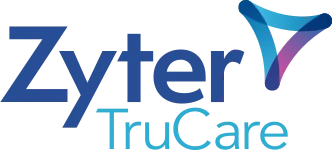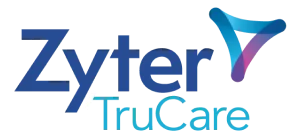EHR Evolution Advances from Basic Digital Records to Comprehensive Care Solutions
Electronic Health Record systems (EHRs) have fundamentally transformed healthcare, enhancing patient care, streamlining operations, and reducing errors. Despite these significant advancements, EHRs confront challenges such as complex user interfaces, limited interoperability, and robust data security needs. Addressing these issues is crucial for leveraging the full potential of EHRs in improving healthcare delivery. Moreover, as healthcare processes become increasingly digitized, EHRs are evolving into more robust systems, essential not only for clinical effectiveness but also as a core business necessity in the healthcare industry. This evolution reflects the growing demand for efficient, secure, and comprehensive data management systems that can adapt to the complexities of modern healthcare environments.
The importance of EHRs was underscored in 2009 when the federal government earmarked $27 billion to encourage their adoption through an incentive program aimed at hospitals and healthcare providers. This initiative has had a substantial impact, with 320 healthcare providers, including 283 physicians and 37 hospitals, receiving $75 million in Medicare incentive payments by May 19th for demonstrating meaningful use of EHRs. This significant investment not only highlights the critical role of EHRs in modern healthcare but also emphasizes the ongoing journey toward optimizing these systems into comprehensive solutions that meet the escalating demands of the healthcare sector.
The Limitations of Current EHR Systems
Electronic Health Record (EHR) systems have become indispensable in contemporary healthcare, acting as a critical infrastructure for managing patient data and optimizing clinical workflows. These systems are essential for recording patient encounters, administering treatment plans, and complying with healthcare regulations. According to research conducted by Cerner Corporation, physicians spend an average of 16 minutes and 14 seconds per interaction with EHRs. However, despite their pivotal role in healthcare, EHR systems face significant challenges that undermine their efficiency. Issues such as user-friendliness, interoperability, and data security not only impede the smooth delivery of healthcare services but also affect the quality of patient care. As the healthcare landscape continues to evolve, addressing these challenges is crucial to maximizing the benefits of EHR technologies and enhancing patient outcomes across the board.
- Usability and User Interface Issues: A study from the American Medical Association highlights a significant challenge: approximately 63% of healthcare providers report that EHR systems have led to increased administrative burdens, detracting significantly from patient care. This statistic underscores the urgent need for interfaces designed with user efficiency in mind. The complexity and clutter of many current interfaces can confuse users, leading to errors and increased time spent navigating the system. Improving these aspects could significantly reduce the cognitive load on healthcare providers, allowing them to focus more on patient interaction rather than on navigating software.
- Interoperability Concerns: The promise of seamless health information exchange across different EHR systems still needs to be fulfilled. According to a 2022 Health IT survey, only 40% of healthcare organizations can effectively share data with external systems without significant manual intervention. This interoperability gap creates silos that hinder collaborative efforts essential for comprehensive patient care. The lack of standardization across systems exacerbates these challenges, preventing effective communication and coordination among healthcare providers. Enhancing interoperability would facilitate a more integrated healthcare environment, ultimately leading to better health outcomes.
- Data Security and Privacy: The digitization of health records introduces vulnerabilities to cyber threats. In 2023, over 100 million people were impacted by cyberattacks on healthcare organizations, compared to 44 million affected in 2022. This ongoing threat underscores the critical need for robust security measures within EHR systems. The escalating number of cyber incidents highlights an urgent need for continuous improvement in security protocols and training for healthcare staff on data protection best practices. Strengthening these areas is essential to protect sensitive patient information and maintain trust in healthcare institutions.
- Incomplete Patient Records: Issues with data standardization, entry errors, and interoperability contribute to incomplete patient records, which affect the quality of care. According to research by Health Affairs, nearly 30% of patient records need to be fully accurate and complete at the time of care, which can lead to misdiagnoses or inappropriate treatment plans. The repercussions of such inaccuracies can be severe, affecting patient safety and treatment efficacy. Systematic improvements in data capture and integration processes are necessary to ensure the completeness and reliability of patient records, thus enhancing the overall quality of medical decision-making.
Overcoming Limitations with Zyter|TruCare
At Zyter|TruCare, we are dedicated to advancing healthcare technology by tackling the core challenges inherent in Electronic Health Records (EHR) systems. Our comprehensive solutions enhance system functionality and align with healthcare providers’ broader goals, transforming healthcare IT into a domain that supports seamless, efficient, and secure operations.
Our Connected Health solutions stand is critical to our efforts to ensure robust interoperability and compliance with healthcare regulations. This suite includes innovative tools tailored to meet the demands of modern healthcare environments:
- TruCare IMEX functions as the backbone of our data management, offering a robust data model enriched with APIs and a configuration migration engine. This tool is pivotal for seamless data integration across all TruCare environments, ensuring uniformity and efficiency in operations.
- TruCare LINX is instrumental in facilitating secure and efficient data exchanges between different healthcare systems. It supports a wide range of data feeds and communication protocols, making it an essential component for achieving comprehensive interoperability.
- TruCare FLEX, our powerful interoperability engine, supports data exchange among diverse health information technology systems, including EHRs, laboratory information systems, and billing platforms. It adeptly handles various data formats, integrating them into the Zyter|TruCare ecosystem to enhance operational cohesion.
- TruCare Change Data Capture (CDC) elevates the responsiveness and adaptability of our solutions by capturing and reacting to real-time changes in data within the Zyter|TruCare ecosystem. This Zyter|TruCare Population Health application component introduces a comprehensive event-driven architecture that ensures updates through user transactions or integrations are immediately available, enhancing healthcare operations’ dynamic adaptability.
These tools are integral to our strategy to comply with critical CMS interoperability rules, such as patient access APIs, provider directory APIs, and payer-to-payer data exchanges mandated by regulations like the Interoperability and Patient Access Final Rule (CMS-9115-F). This rule guarantees patients direct, secure access to their medical records, enhancing transparency and patient engagement.
Ensuring Compliance and Efficiency
Our Connected Health solution meets and exceeds CMS requirements, offering a complete FHIR® solution with FHIR® 4.x support and mapping over 1,300 formats and data elements. This comprehensive approach ensures healthcare organizations can stay compliant with evolving regulations without the risk of penalties or fines.
Furthermore, our solutions are deployable by our highly experienced technical teams, known for their A+ rating in on-time, on-budget implementations. This reliability and expertise underscore our commitment to equipping healthcare organizations with the necessary tools to operate more efficiently and deliver exceptional patient care.
Future-Ready Healthcare Technology
Zyter|TruCare’s approach extends beyond merely addressing current limitations of EHR systems; it prepares healthcare organizations to face future challenges. Our adaptable solutions are designed to accommodate evolving regulatory requirements and technological advancements, ensuring that healthcare systems remain compliant and at the forefront of industry standards.
Through our comprehensive suite of Connected Health solutions, we are paving the way for a more connected and efficient healthcare ecosystem. Our efforts are focused on redefining what is possible in healthcare technology, enhancing the delivery of patient care, and ultimately overcoming the limitations of current EHR systems.
Enhancing EHR Systems for Future Healthcare Needs
While EHR systems have laid a strong foundation for digitizing medical records, there is substantial room for enhancement. Zyter|TruCare is committed to evolving these systems into more effective tools for healthcare delivery. By expanding the functionalities of EHR systems and tackling existing challenges, we help healthcare providers deliver the highest quality of care. Our solutions enhance healthcare operations and are continuously innovated to meet the demands of the healthcare sector. This active development and deep understanding of healthcare needs are setting new standards in EHR technology and healthcare interoperability, impacting patient care and healthcare management efficiency.
We invite you to engage with the latest industry findings and discussions for further insights into optimizing your EHR systems and enhancing your healthcare delivery strategies. Connect with us today to explore how you can transform healthcare management and improve patient outcomes through comprehensive and advanced EHR solutions. Click Here for more information and start your journey toward effective healthcare innovation.







